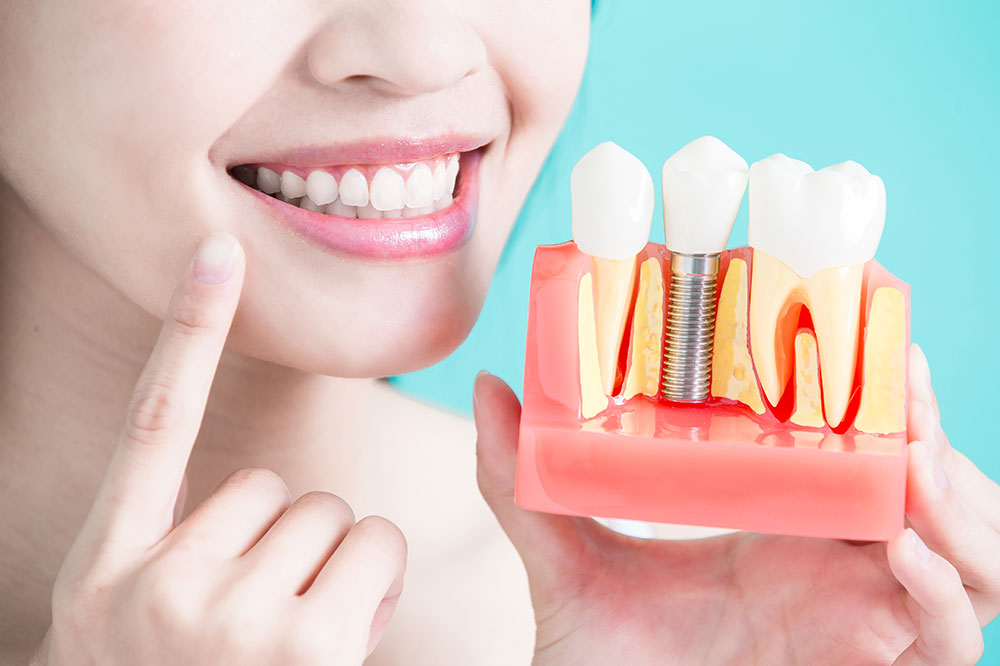Everything to know about dental implant procedure

A smile is incomplete without healthy, white teeth enhancing its appeal. Dental implant procedures help individuals gain suitable replacements for their lost teeth. Dental implants have a 98% success rate and are becoming immensely popular in the country. However, before opting for this procedure, it is essential to consult a reliable dentist, understand the pros and cons of the process, and take the necessary measures. This article provides a detailed insight into dental implants:
What are dental implants?
A dental implant is an artificial device inserted into the jaw and acts as a root to hold an artificial tooth. These implants are permanent solutions made of titanium. They are recommended for individuals who have lost their teeth due to a health condition or injury and are uncomfortable with dentures.
Types of dental implants
Endosteal
Here, cylinders, screws, or blades are inserted surgically in the jawbone and may hold one or multiple artificial teeth.
Subperiosteal
The implant is placed on the jaw, and the posts protrude through the gum, holding the prosthetic in place.
Prerequisites for getting a dental implant
Before getting a dental implant, here are some conditions that one must fulfill:
- Good oral health
- Adequate jawbone for holding the implant firmly
- Healthy gum tissues
- No health conditions that would hamper bone healing
Types of procedures for dental implant
Full-mouth dental implants
This procedure is undertaken for individuals who have lost all their teeth. People opt for full-mouth dental implants as they are more long-lasting and comfortable than dentures.
Single-tooth dental implants
Dentists recommend single-tooth dental implants for individuals who have lost only one tooth.
Multiple-tooth dental implants
This procedure is for individuals who are missing more than one tooth.
Ridge modification
Upper and lower-jaw deformities sometimes make it difficult for the jawbone to hold the implant. In such cases, the gum is moved from the ridge to reveal the space where the bone is missing. A bone or bone substitute is then placed here to form the ridge.
Sinus augmentation
Sinus augmentation is a process that elevates the sinus floor. It allows dental implants to be placed in situations where a dental implant procedure is required in the upper back jaw, situated close to the sinus.
Benefits of opting for a dental implant procedure
They are long-lasting
Dental implants’ primary advantages are that they are durable and firmly rooted in the gums. Thus, unlike dentures, these artificial teeth need not be removed.
They do not cause bone loss
Wearing dentures can eventually lead to bone loss due to their friction with the ridge when they become loose. However, with dental implants, the prosthetic teeth are firmly rooted to the gums; thus, they prevent bone loss and promote eventual bone growth.
They prevent sagging of the face
Facial sagging is often caused due to bone loss when a person loses one or more teeth. Dental implants can significantly enhance face aesthetics and help resolve this issue.
They prevent gum disease
A missing tooth can become the breeding point for gum diseases, as food can get lodged in the gap and cause bacterial growth. Dental implants prevent gum disease by filling such gaps.
They require no adhesives
At times, dentures need to be re-glued after meals, however, dental implants are fixed to the gums and require no adhesives.
Dental implants: Things to remember
Understand the procedure
The first step is to undertake thorough research and understand the pros and cons of the procedure and what one would have to undergo. Patients must also know what type of dental implant procedure they require and the budget needed.
Consult a licensed dentist
The dentist conducting this procedure should be licensed by a recognized dental authority and well-qualified and experienced in the field. It helps to read online reviews and seek feedback from friends and family about different dentists before shortlisting one. Moreover, one should book a consultation and ask questions to the dentist to gauge their knowledge and proficiency.
Practice dental hygiene
Following proper dental hygiene before and after the procedure is crucial, including brushing twice daily and gargling after meals. Such practices help avoid tartar and other dental problems.
Avoid certain foods after the procedure
Any food items that can increase teeth sensitivity or exert pressure on the teeth should be avoided after the dental implant procedure. For example, crunchy and chewy foods, sticky foods like caramel and chewing gum, and spicy foods should be avoided for some days.